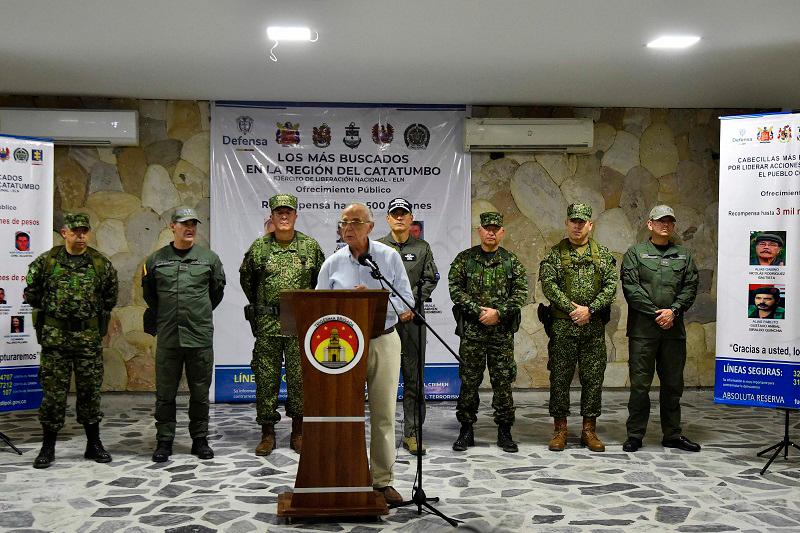BOGOTÁ: Colombia’s President Gustavo Petro made a further outreach to Venezuela on Saturday, voicing hope the neighbors can work “together” to confront deadly guerrilla violence.
Petro said Thursday that he had been in contact with the Venezuelan government, floating a “joint plan to eradicate armed gangs on the border.”
Colombian Defense Minister Ivan Velasquez then met Friday with his Venezuelan counterpart, Vladimir Padrino, in the Venezuelan border city of San Cristobal, for discussions aimed at improving security cooperation.
Padrino said Venezuela was prepared to “collaborate” with its neighbor to “consolidate peace.”
Responding to Padrino on Saturday, the Colombian president said the two countries “just need to put (their collaboration) into action, together.”
Colombia is struggling to contain violence in the mountainous northeastern Catatumbo region, where a 5,800-strong National Liberation Army (ELN) has targeted rival armed groups and their alleged sympathizers.
The ELN is trying to assert control over a swath of the border region that is home to plantations and trafficking routes that provide much of the world’s cocaine.
The offensive has killed at least 80 people, while dozens more have been kidnapped and tens of thousands have been displaced, according to government and United Nations estimates.
Colombia also said Friday that its campaign against the ELN now included a military offensive on the Venezuelan border.
Colombia’s bid to cooperate with Venezuela is fraught with potential pitfalls.
Colombia’s intelligence agencies allege the ELN has long received backing and protection from Venezuela, with some of the group’s leaders believed to live across the border.
And Petro’s decision to engage with President Nicolas Maduro’s government so soon after it was accused of stealing another election from the opposition is likely to provoke anger.
For its part, Venezuela has accused Colombia of providing “shelter” to leaders of the Tren de Aragua -- one of Venezuela’s biggest gangs, with an estimated 5,000 members operating across Latin America.
The group engages in migrant smuggling, drug trafficking, kidnappings and racketeering and has been targeted by President Donald Trump for inclusion on the US list of terror group.









